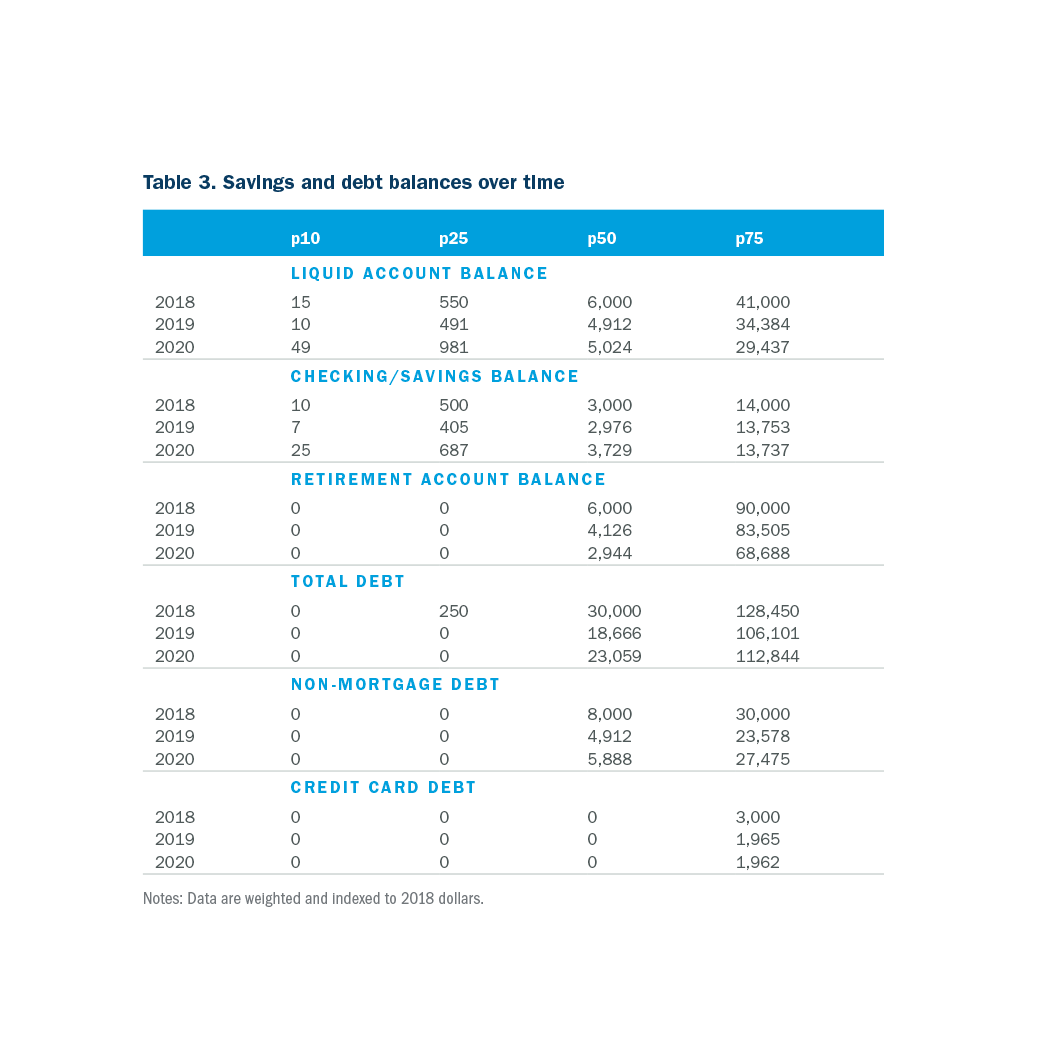Since many households lack the ability to weather unexpected financial shocks, how has the pandemic thus far affected Americans' financial stability?
Summary
The coronavirus pandemic has had enormous effects on the U.S. economy due to governmental mandates temporarily closing businesses and schools, and individuals remaining home due to fears of infection. In response, policymakers expanded unemployment benefits and passed legislation providing many people with Economic Impact Payments. As a result, many Americans' financial stability actually improved early in the pandemic, both in subjective measures, like financial satisfaction, and more objective measures, like financial fragility and savings behavior and balances.
Key Insights
- Individuals who were more economically vulnerable pre-pandemic experienced differentially larger improvements in their financial situation after the pandemic's onset.
- Much of the improvement, both overall and differential, was driven by the stimulus, which was more impactful for those who were more economically vulnerable pre-pandemic.
- Rather than simply help prevent widening inequality in financial stability, the governmental policy response may have helped close the gap, at least temporarily.




